
Hélène Cixous is a French writer, playwright and literary critic. During her academic career, she was primarily associated with the Centre universitaire de Vincennes, which she co-founded in 1969 and where she created the first centre of women's studies at a European university. Known for her experimental writing style and great versatility as a writer and thinker, she has written more than seventy books dealing with multiple genres: theater, literary and feminist theory, art criticism, autobiography and poetic fiction.
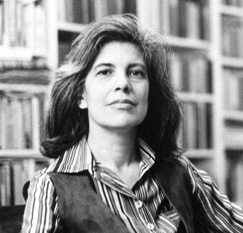
Susan Lee Sontag was an American writer, critic, and public intellectual. She mostly wrote essays, but also published novels; she published her first major work, the essay "Notes on 'Camp' ", in 1964. Her best-known works include the critical works Against Interpretation (1966), On Photography (1977), Illness as Metaphor (1978) and Regarding the Pain of Others, as well as the fictional works The Way We Live Now (1986), The Volcano Lover (1992), and In America (1999).

Clarice Lispector was a Ukrainian-born Brazilian novelist and short story writer. Her innovative, idiosyncratic works explore a variety of narrative styles with themes of intimacy and introspection, and have subsequently been internationally acclaimed. Born to a Jewish family in Podolia in Western Ukraine, as an infant she moved to Brazil with her family, amidst the disasters engulfing her native land following the First World War.
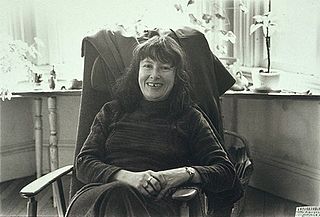
Priscilla Denise Levertov was a British-born naturalised American poet. She was a recipient of the Lannan Literary Award for Poetry.

Robert Walser was a German-speaking Swiss writer. Walser is understood to be the missing link between Heinrich von Kleist and Franz Kafka. As writes Susan Sontag, "at the time [of Walser's writing], it was more likely to be Kafka [who was understood] through the prism of Walser." For example, Robert Musil once referred to Kafka's work as "a peculiar case of the Walser type."
Giovanni Pontiero was a Scots-Italian scholar and translator of Portuguese fiction. Most notably, he translated the works of José Saramago and Clarice Lispector, two celebrated names in Portuguese-language literature.
Ivan Pinheiro Themudo Lessa was a Brazilian journalist and writer of American descent.
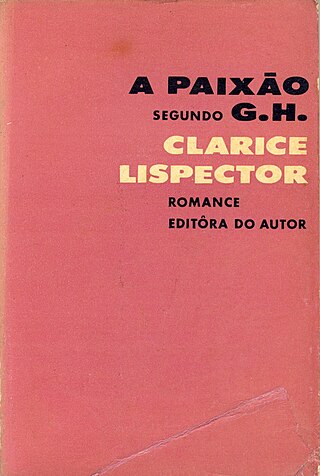
The Passion According to G.H. is a mystical novel by Brazilian writer Clarice Lispector, published in 1964. The work takes the form of a monologue by a woman, identified only as G.H., telling of the crisis that ensued the previous day after she crushed a cockroach in the door of a wardrobe. Its canonical status was recognized in 1988 by its inclusion in the Arquivos Collection, the UNESCO series of critical editions of the greatest works of Latin American literature. It has been translated into English twice, the first time in 1988 by Ronald W. Sousa, and then by Idra Novey in 2012.

Chechelnyk is an urban-type settlement on the Savranka River in Vinnytsia Oblast, Ukraine, near Odesa Oblast, located in the historic region of Podolia. Chechelnyk was formerly the administrative center of Chechelnyk Raion, although it is now administrated under the Haisyn Raion. The economy is based on the food industry, especially alcohol production. Population: 4,785
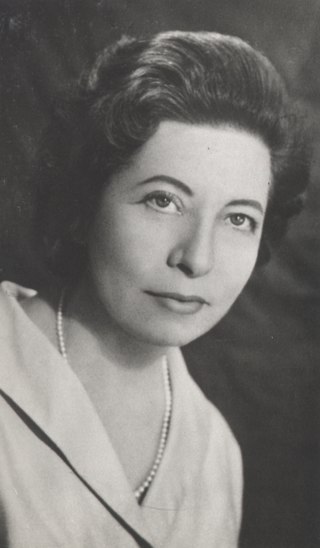
Elisa Lispector was a Brazilian novelist.
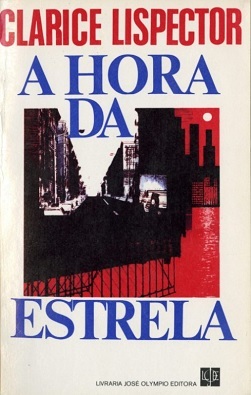
The Hour of the Star is a novel by Clarice Lispector published in 1977, shortly before the author's death. In 1985, the novel was adapted by Suzana Amaral into a film of the same name, which won the Silver Bear for Best Actress in the 36th Berlin International Film Festival of 1986. It has been translated into English twice by New Directions Publishing with Giovanni Pontiero's 1992 translation followed by Benjamin Moser's version in 2011.

Near to the Wild Heart is Clarice Lispector's debut novel, written from March to November 1942 and published around her twenty-third birthday in December 1943. The novel, written in a stream-of-consciousness style reminiscent of the English-language Modernists, centers on the childhood and early adulthood of a character named Joana, who bears strong resemblance to her author: "Madame Bovary, c'est moi", Lispector said, quoting Flaubert, when asked about the similarities. The book, particularly its revolutionary language, brought its young, unknown creator to great prominence in Brazilian letters and earned her the prestigious Graça Aranha Prize.

Idra Novey is an American novelist, poet, and translator. She translates from Portuguese, Spanish, and Persian and now lives in Brooklyn, New York.

Paulo Rónai was a Hungarian-Brazilian translator, philologist, and critic.

Freud: The Mind of the Moralist is a book about Sigmund Freud, the founder of psychoanalysis, by the sociologist Philip Rieff, in which the author places Freud and psychoanalysis in historical context. Rieff described his goal as being to "show the mind of Freud ... as it derives lessons on the right conduct of life from the misery of living it."
Senhor was a monthly cultural magazine published in the period of 1959 and 1964. The magazine was headquartered in Rio de Janeiro, Brazil.
A Breath of Life is the last novel by Brazilian author Clarice Lispector. It was published posthumously in Brazil in the late 1970s. The book takes the form of dialogue between a male "Author" and his female creation, Angela Pralini. The god-like author infuses the so-called breath of life into his creation who speaks, breathes, lives and dies at his behest. The author loves yet wants to destroy Angela even though he can not ultimately separate her from himself.
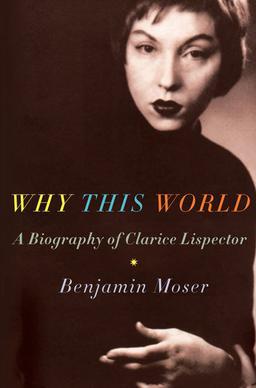
Why This World: A Biography of Clarice Lispector is a book by Benjamin Moser published by Oxford University Press in 2009. Benjamin Moser details the majority of Clarice Lispector's life and then discusses the connections between her life and her work.

Sontag: Her Life and Work is a 2019 biography of American writer Susan Sontag written by Benjamin Moser.

Água Viva is a 1973 novel by the Brazilian author Clarice Lispector. The novel has an unconventional form and uses no other form of structure other than double paragraph breaks, lacking chapters or sections. It also does not feature conventional plot or named characters and is framed as a directionless monologue from an artist, perhaps speaking to a lover, the public, or the work itself. In the novel, Lispector states that her goal is to fire "an arrow that will sink into the tender and neuralgic centre of the word".
















